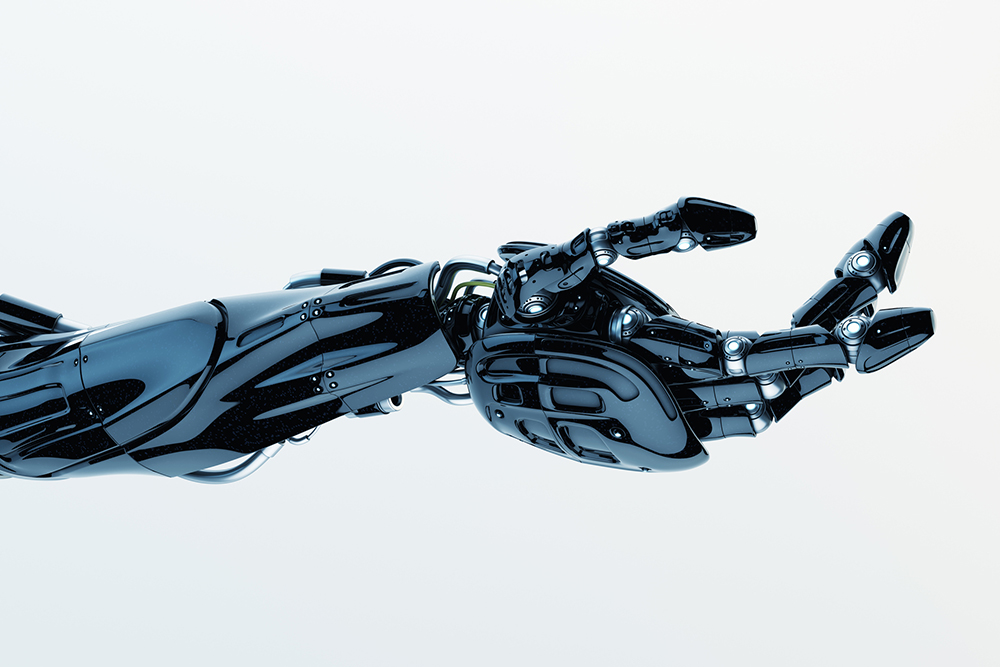
One of the best reasons to watch Netflix is to get EntertainHR article ideas from the Marvel Cinematic Universe. There are so many to choose from, but the various miniseries based on the Defenders (Luke Cage, Jessica Jones, Daredevil and the Iron Fist) are the best. Of those miniseries, my favorite is Luke Cage (Mike Cotler), Harlem’s bulletproof super (anti?) hero. Luke Cage, a wrongfully-convicted former police officer and Misty Knight (Simone Missick), a fearless and talented NYPD patrol officer stationed in Harlem, are frenemies.

Source: Ociacia / iStock / Getty
Misty lost her dominant arm protecting her friend Colleen (Jessica Henwick) from a sword-wielding Bakuto (Ramon Rodriguez). Ultimately Danny Rand/Iron Fist (Finn Jones) created a bionic arm for Misty (although the comics portray that Iron Man actually created this bionic arm) that gave her superhero abilities. However, for a brief period of time and prior to receiving this super bionic arm, she returned to work at the precinct.
At the end of season 1 and beginning of season 2 of the Luke Cage miniseries, Misty’s dominant arm was amputated. Recovering from the loss of her arm, Misty retired from the police force. However, when she realized that several dozen of the criminals that she put behind bars were released, she was energized to return to work. However, as an amputee, she was deemed unable to perform her duties and assigned to desk duty. Her coworkers teased her. Even on desk duty, it was difficult to write with her non-dominant hand. While likely not within the course of her duties, during an exciting scene consisting of a bar fight with an abusive patron, she swung at him with her now-amputated arm, and missed.
Misty was obviously unsatisfied with her assignment to desk duty—what could she do in this role but “push paper?” She desired to return to patrol work so that she could get these bad guys back behind bars. Did Misty have any options under the Americans with Disabilities Act (ADA)? The key question to guide this discussion is whether Misty was qualified to work as a patrol officer. A related question, although Misty seemed unbothered by her colleagues’ taunting, is did she have legal recourse against them for harassment?
Does the Americans with Disabilities Act Apply?
Discrimination under the ADA is defined as the failure of an employer to make reasonable accommodation to an otherwise qualified individual with a disability.
Did Misty Suffer from a Disability?
The first question in determining an employer’s obligations under the ADA is whether a condition is a disability. In Misty’s case, it is clear that her amputated dominant arm substantially limited a major life activity and thus, she was disabled under the ADA.
Was Misty a Qualified Individual?
The second question is whether Misty was a qualified individual under the ADA. A qualified individual under the ADA is a person who with or without reasonable accommodation can perform the essential functions of a job that she holds or desires.
The EEOC regulations provide that an alleged job function may be essential if the reason the position exists is to perform the function. Essential job functions of patrol officers have been described (although some courts have disagreed) as effecting forcible arrests, driving a motor vehicle under emergency conditions, and qualifying with weapons.
Regarding reasonable accommodation, while courts have agreed that an individual with a flail arm is not a qualified individual because he cannot perform the essential job functions of a police officer without or without reasonable accommodation (since the arm cannot move at all), an operational prosthetic (that mimics the actions of a functioning arm), and certainly a super prosthetic is arguably a reasonable accommodation. Further, some police departments have allowed police officers who were unable to weapon qualify with both hands to weapon qualify with one hand (a reasonable accommodation). Surely, with her super-bionic arm, Misty could weapon qualify and effect a forcible arrest. Further, although Misty was exhibiting trouble writing with her non-dominant hand, maybe if given the opportunity to weapon qualify with one hand, her tenacity would have prevailed. Further, vehicle modifications are available to assist drivers with missing limbs. Even temporary light duty has been considered a reasonable accommodation. But permanent light duty for a police officer, without conversion of such position into a non-police officer position, has not been viewed as a reasonable accommodation, as such positions are generally set aside for temporarily injured police officers.
Was the Teasing She Suffered at the Hands of Her Coworkers Considered Arguable Harassment?
Several courts of appeals have held that disability harassment is actionable; however, the Second Circuit, where Misty’s precinct is located, has not yet ruled on the issue. However, if Misty complained about her coworkers’ conduct, the NYPD should have taken such allegations of such harassment seriously and investigated.
Bottom Line
Outside of the Marvel Cinematic Universe, employers may never handle reasonable accommodation issues involving employees with super-bionic limbs who partner with bulletproof super (anti?) heroes. However, an understanding of the types of individuals who must be offered reasonable accommodations and the types of activities that encompass reasonable accommodations will prove invaluable to human resources personnel.